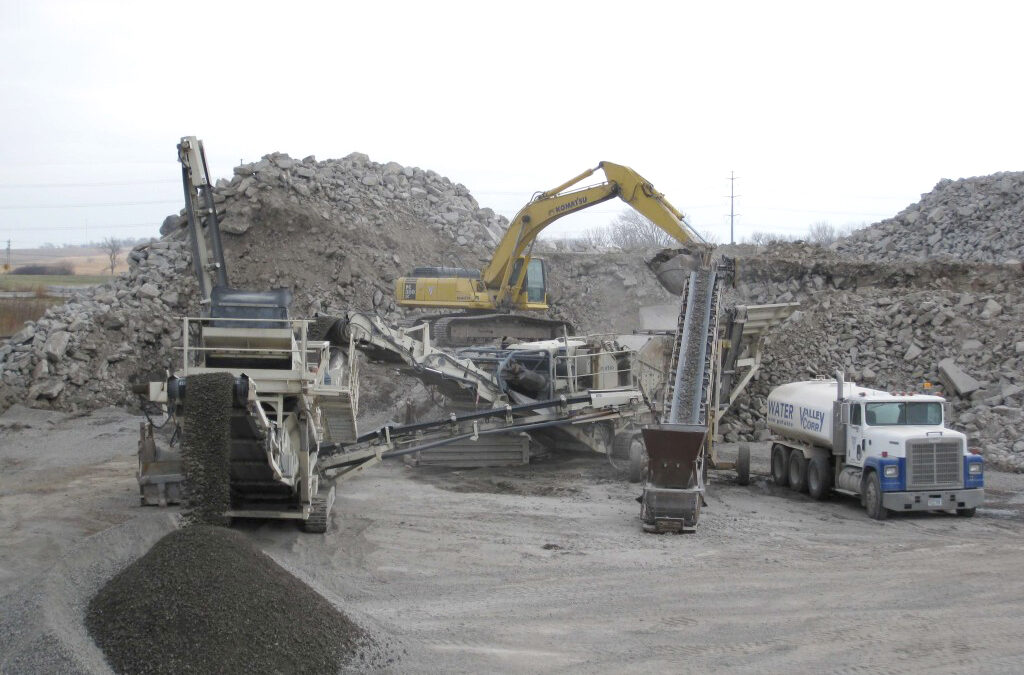Concrete makes up the lion’s share of construction waste, but the good news is, it’s one of the most widely-recycled materials in the world, with the United States alone accounting for 140 million tons per annum. In contrast to the dozens of kinds of plastic available (many of which can’t be recycled), concrete recycling is cheap and easy; unlike many other recycled materials, recycled aggregate concrete can even be re-used on site, slashing project costs by saving on removal, disposal, and the purchase of new aggregate. Over the course of nearly thirty years, scores of businesses, contractors, and homeowners have relied on Valley Corporation for on-site concrete recycling, aggregate concrete sales, and even concrete removal. It may surprise you to know that when we recycle, everyone benefits.
Uses for Recycled Concrete
There are three typical uses for recycled aggregate, each of which simply requires a different degree of processing than the others. Most commonly, recycled concrete aggregate is used as a subbase for driveways, roads, and parking lots, as shoulder stone, pipe bedding or as a backfill material; this eliminates or limits the need for more expensive stone and gravel.
With a bit more processing, old concrete may even find new life as aggregate for new concrete. New concrete consists of Portland cement, water, and aggregate. Using reclaimed material as the aggregate reduces the amount of virgin material used, and is perfectly suitable for lower-load applications.
Processed further still, recycled aggregate has another use as well: engineered fill sand. It has a fine grain, making it versatile, and it also tends to neutralize pH levels. This last property makes it ideal for environmental remediation.
Benefits of Recycling Concrete
While it’s usually a necessary first step for many projects, demolition creates large amounts of waste. That, in turn, can lead to cost overages, since disposing of concrete incurs disposal and tipping fees. Further expense is added when new aggregate needs to be quarried and transported. Each of those things takes energy, fuel, and other natural resources.
In contrast, recycled concrete sends far less waste to landfills. Because it can often be used on the same site from which the concrete is taken, there’s less energy used for transport; indeed, some of the only fuel used is that which is consumed by the crushers, impactors, and screeners used on-site for the recycling process. For builders and contractors aiming for a LEED building certification, it’s also worthwhile to remember that the use of recycled concrete can boost your LEED score.
Finding an Aggregate Recycling Corporation Near Omaha and Council Bluffs
Although Valley Corporation provides general contracting services to the Omaha Metro Area and Council Bluffs Metro Areas — which we’ve been proud to do since 1972 — we offer far more than that. Twenty years after our founding, we started Midwest Aggregate Recycling Services, which recycles and sells recycled concrete and asphalt products. While we can operate on your jobsite, we also offer drop-off points for concrete and asphalt, and can also arrange pickup for contractors and homeowners alike. For assistance with your concrete and aggregate recycling challenges, contact us today.

